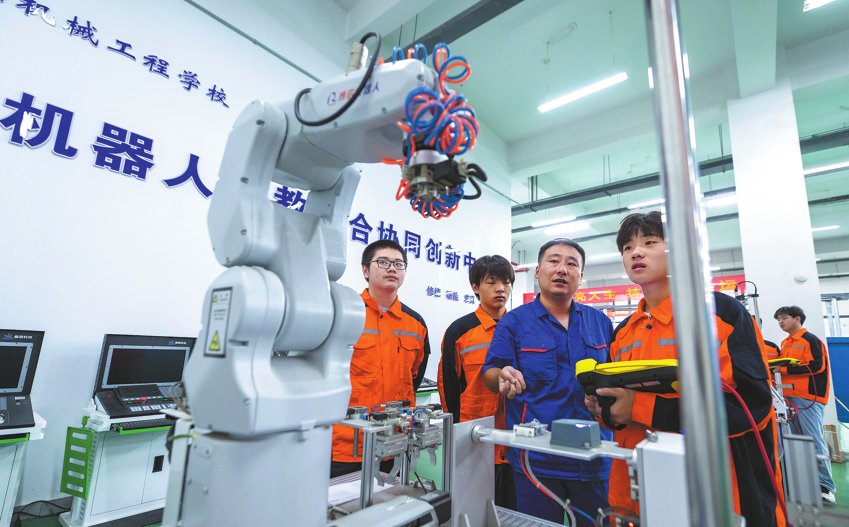The Study for Dreams Initiative, launched in 2016 by the Ministry of Education and the All-China Federation of Trade Unions, has undergone a significant transformation aimed at enhancing the educational qualifications and skills of industrial workers across China. Originally focused on migrant workers, the initiative now encompasses all industrial workers, integrating academic and non-academic education to foster a culture of lifelong learning. With ambitious goals set for 2030, including the establishment of 300 educational projects and support for over 3 million workers, the initiative seeks to build a highly skilled workforce capable of meeting the demands of a rapidly evolving industrial landscape. This comprehensive approach is underpinned by collaborative guidelines from multiple governmental bodies, emphasizing the importance of coordinated efforts in resource sharing and talent development.
The implications of this initiative are profound, as evidenced by success stories like that of Yuan Caifeng and He Xiujie, who have leveraged educational opportunities to advance their careers significantly. By integrating practical training with academic coursework, companies like SF Express are creating pathways for employees to transition from entry-level positions to management roles, thereby enhancing workforce capabilities. The initiative's expansion into various sectors, including the electric power industry in Chongqing, demonstrates its potential to drive innovation and improve operational efficiency through education. As industry-education integration alliances proliferate, the initiative is poised to not only uplift individual workers but also contribute to the overall competitiveness of China's industrial sector, ultimately shaping a more skilled and adaptable workforce for the future.









